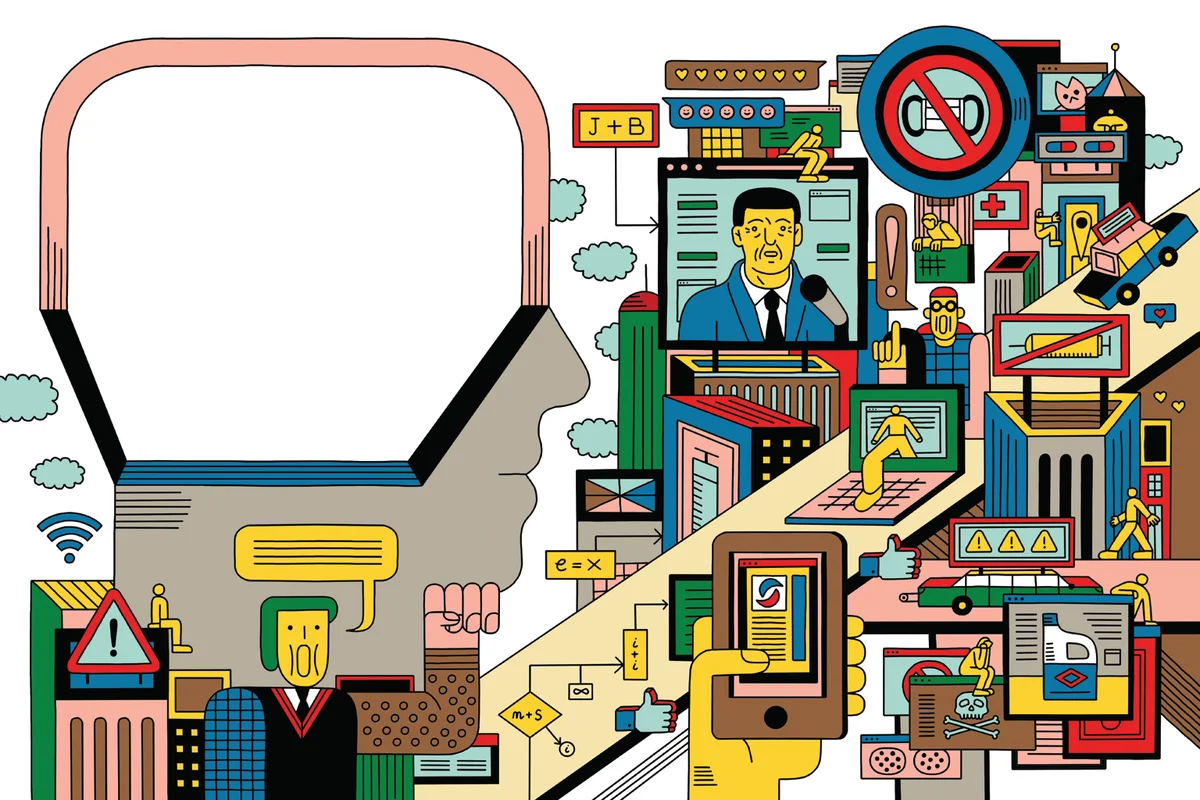The Impact of Disinformation on Modern Democracies
This article explores the profound impact of disinformation on modern democracies, highlighting how false information undermines public trust, influences elections, and threatens democratic institutions worldwide.
Jane Morris
October 08, 2025 • 3 min read

Overview
In the age of information, the ability to access news and opinions from around the globe is at our fingertips. However, this unprecedented flow of information comes with a significant caveat: disinformation. Defined as false or misleading information deliberately spread to deceive, disinformation poses a severe threat to the integrity of modern democracies. From social media platforms to mainstream media outlets, the prevalence of disinformation creates an environment where voters struggle to discern fact from fiction, ultimately undermining the democratic process.
Disinformation is not new; however, its methods and reach have evolved dramatically with technology. Traditional forms included pamphlets and newspapers, but today it primarily operates through social media, influencer platforms, and even AI-generated content. With algorithms designed to prioritize sensationalism over accuracy, disinformation can spread rapidly, reaching millions of users within hours.
The Impact of Disinformation on Modern Democracies
In the age of information, the ability to access news and opinions from around the globe is at our fingertips. However, this unprecedented flow of information comes with a significant caveat: disinformation. Defined as false or misleading information deliberately spread to deceive, disinformation poses a severe threat to the integrity of modern democracies. From social media platforms to mainstream media outlets, the prevalence of disinformation creates an environment where voters struggle to discern fact from fiction, ultimately undermining the democratic process.
Understanding Disinformation: A Modern Threat
Disinformation is not new; however, its methods and reach have evolved dramatically with technology. Traditional forms included pamphlets and newspapers, but today it primarily operates through social media, influencer platforms, and even AI-generated content. With algorithms designed to prioritize sensationalism over accuracy, disinformation can spread rapidly, reaching millions of users within hours.
Research indicates that false information is 70% more likely to be retweeted than accurate information. This rapid dissemination can lead to a widespread misunderstanding of key issues, from public health crises like the COVID-19 pandemic to significant political events such as elections.
One glaring example of disinformation’s impact is the misinformation surrounding vaccines. False narratives about vaccine safety circulated widely during the pandemic, leading to increased vaccine hesitancy and significantly impeding public health efforts. As people turn to social media for information, they often encounter poorly sourced claims that can discredit scientific consensus, creating a polarized society where facts become secondary to belief.
The Erosion of Trust in Institutions
The consequences of disinformation extend beyond individual misconceptions; they contribute to a broader erosion of trust in democratic institutions. When citizens are bombarded with conflicting information, it becomes challenging to trust governmental agencies, media sources, and even each other. This mistrust can lead to political apathy and disengagement, as citizens feel disillusioned with a system they perceive as corrupt or incompetent.
In an environment rife with disinformation, political polarization often intensifies. Voters may gravitate toward extreme viewpoints, further fragmenting society. The 2016 U.S. presidential election serves as a stark example, where disinformation campaigns — both domestic and foreign — exploited existing divisions within the electorate, fueling animosity and distrust.
Moreover, disinformation can manipulate electoral outcomes. Various studies have highlighted instances where strategic misinformation campaigns influenced public opinion, leading to significant electoral shifts. The use of deepfakes, bots, and coordinated inauthentic behavior complicates the landscape further, making it nearly impossible for the average voter to recognize manipulative tactics.
Combatting Disinformation: A Collective Responsibility
Addressing the disinformation crisis is crucial for preserving democracy. Responsible journalism, media literacy education, and robust legislation targeting misinformation are necessary steps toward countering this growing threat.
- Fostering Media Literacy: Education plays a pivotal role in equipping citizens with the skills necessary to analyze sources critically. Promoting media literacy from an early age can enhance individuals' abilities to discern fact from misinformation, making them better-informed voters.
- Strengthening Journalism: Journalistic integrity must be prioritized. Quality journalism that fact-checks and sources information accurately is essential in combating disinformation. News organizations should focus on transparency and accountability, providing audiences with reliable content that fosters informed public discourse.
- Legislating Against Misinformation: Governments around the world are beginning to recognize the need for regulations that hold platforms accountable for the spread of disinformation. Implementing legislation that targets harmful practices while respecting the tenets of free speech is a delicate balance but an essential one for protecting democracy.
Conclusion
The impact of disinformation on modern democracies is profound and far-reaching. As we navigate an increasingly complex information landscape, understanding and addressing this issue becomes imperative for sustaining democratic values. By promoting media literacy, supporting robust journalism, and implementing effective legislation, we can counteract the spread of disinformation and restore faith in democratic institutions. In doing so, we not only protect our societies but also empower citizens to make informed choices, ensuring the vibrant health of our democracies for generations to come.
Comments
0 TotalNo comments yet. Start the conversation.
Explore More Deep Dives

Deep Dives
Exploring the Impact of Generative AI on Business
DEEP DIVE Exploring the Impact of Generative AI on Business As generative AI technologies evolve, their transformative potential f...
Read deep dive
Deep Dives
How Artificial Intelligence Will Affect the Jobs of the Future
Artificial Intelligence is rapidly transforming the workforce, reshaping job roles, creating new opportunities,
Read deep dive
Deep Dives
Street Art and Muralism as Tools for Social Transformation
Discover how street art and muralism serve as powerful tools for social transformation by fostering community engagement, challeng...
Read deep dive